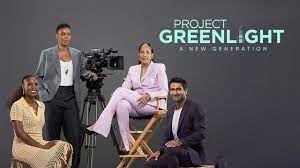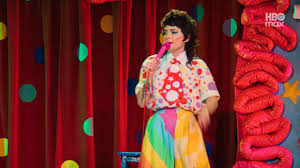Project Greenlight: A New Generation Review 2023 Tv Show Series Cast Crew Online
Each episode of the new season of “Project Greenlight” begins with a worthy mission statement. “We’re choosing a woman director,” executive producer Issa Rae tells us, “because ‘Project Greenlight’ has never had one before.” Gina Prince-Bythewood, the director of films including “The Woman King” and also an executive producer here, adds, “It’s about time the world sees how many dope women directors there are just waiting to get their shot.”
These are statements that are hard to argue with — “Project Greenlight,” this season, did choose a woman director, the first-time filmmaker Meko Winbush, to pull together a feature film, the sci-fi family drama “Gray Matter,” in just 18 days of shooting. And Winbush, who is Black, is one of many who deserve a chance of the sort the industry doesn’t tend to hand out freely to women of color, something both “Insecure” creator Rae and Prince-Bythewood surely understand well. (They’re two of three putative “mentors” for Winbush on the show, along with actor Kumail Nanjiani, who also co-wrote “The Big Sick.”) And yet the show is purpose-built not to elevate or to celebrate Winbush but to somewhat ruthlessly pull apart the ways in which she might be made to look unready for the job and unsteady on her feet. It’s a shockingly watchable series that evinces that sickly feeling of humiliation from a past, crueler era of reality TV — “The Comeback,” but make it indie.
“Project Greenlight,” as a franchise, does have a long history, albeit as a show that, somewhat like a highbrow “The Voice,” has always generated fun television without forging any lasting careers. It first aired on HBO in 2001, with Ben Affleck and Matt Damon providing guidance; its most recent season, in 2015, was most notable for a blow-up in which Damon picked an argument with producer Effie Brown, a Black woman, after she suggested that the crew for the film they were making ought to be more inclusive. What’s changed, in a franchise now headed by Rae, is obvious. What hasn’t is the sneaky ravenousness of the camera, catching moments that reflect dubiously on all participants. Winbush seems a deeply internal person whose response to criticism or advice is to mull it over privately. It’s worth noting that this is indeed not the perfect constellation of traits for a film director, and Winbush’s eventual challenges on the show seem somewhat foretold.
But for reality TV, too, this quality of rumination means that Winbush leaves herself open to be defined by others. That’s an opportunity that Rae’s team of executives seize with relish. The director they chose is plainly a poor match for the personalities at Rae’s production company, Hoorae, and is depicted as lacking a certain intuition for handling the sensitivities that thrive in the Hollywood boardroom. This manifests in large ways — as with what is described, in horrified terms, by Hoorae execs as Winbush’s fundamental resistance to taking notes — and in small ones that seem perfectly calibrated to alienate the director from studio customs. (A scene in which Winbush inadvertently reveals she hasn’t saved Hoorae higher-up Sara Rastogi’s phone number plays out like a tiny and perfectly wrought nightmare.)
What Winbush, and directors like her — including the many who aimed for “Project Greenlight’s” spotlight and didn’t get it — are up against systemically is huge, and all too apparent. That’s so true, perhaps, that it became a tastier meal for this season to serve as a dissection of Winbush’s personality and manner. It’s hard to pinpoint exactly when the sinking feeling that Winbush was being set up began to take hold: Maybe it’s when, in the fourth episode of 10, Rae calls from the London set of “Barbie” to vaguely check in, and concludes by laughing, “I’m sorry I didn’t help you in any way!” But before that comes a bizarre scene when Rastogi elevates her standing desk as far as it can go with her feet still on it, and then issues notes while near-fully recumbent, a body-horror parody of the feet-on-desk exec. And still before that, Hoorae’s president, Montrel McKay, jokes with his colleagues that, given Winbush’s creative struggles, “Matt Damon and Ben Affleck are rolling over in their graves right now!” It’s an unguarded moment that reveals just how little respect Winbush had earned even near the start of a process putatively meant to support her. (In Damon and Affleck’s final season, they ended up letting their white male director ditch the project they’d assigned him and shoot his own script. They might indeed be surprised by how Winbush was treated!)
Can one blame Winbush for being disengaged? She was selected for a process meant to provide a major opportunity to learn and grow, and handed both a script that did not work and a suite of mentors only occasionally at her disposal. (In addition to Rae’s “Barbie” duties, Prince-Bythewood was finishing work on “The Woman King” and Nanjiani was shooting “Welcome to Chippendales” during “Project Greenlight’s” production.) The Hoorae team’s unceasing picking at Winbush seems like an attempt both to distance themselves from whatever was to be her finished product and from the fact that they chose both a lemon of a script and a director who couldn’t or wouldn’t fix it. Say this for the documentary aspect of “Project Greenlight”: It gets Hollywood’s tendency to pass the buck precisely right.
Through it all, “Project Greenlight” remains somewhat toxically watchable. The nuts and bolts of how a production comes together are inherently fascinating even beyond the intrigue lent by Hoorae’s court-of-Versailles culture. And Winbush’s disengagement from her colleagues, amid many of her own mistakes, winds up in a relatable sort of petulance. When she takes off her mic pack on set to stop being part of the shoot, it reads both as the latest misstep by a green director whose instincts lead her away from success each time and as a reclamation. She clearly gets that the production is in trouble.
So, finally, does Rae, whose return from Barbieland is met with the unhappy revelation that Winbush’s completed film does not work. (We’ll have to decide for ourselves, and will soon get the chance — like the bland and forgettable sitcom and the excoriating reality show on HBO’s “The Comeback,” both the film “Gray Matter” and the show documenting its tormented birth launch on the same day.) “I have no words,” Rae says after a final meeting with Winbush, going over the finished film and expressing frustration Winbush never addressed the notes her team gave. As if to build a case in court, the series then plays back all of the times Winbush ignored Team Hoorae’s advice in a lengthy flashback montage. When it comes to this film’s failure, the creative executives who hand-selected this director are blameless.
It’s a glum note to end on, and the show pulls together a happy face when “Gray Matter” screens for the public; one producer takes pains to note how exciting it was to see “the sound, the music, the score” all completed. And Rae appears again, speaking in general terms about the impact “Greenlight” can have on a career. “So, so many directors applied to be a part of ‘Project Greenlight,’” she tells the camera, and notes that many of the directors whom they didn’t choose to feature have gone on to have career boosts. It’s once again hard to disagree with Rae — those directors are very fortunate, and very lucky. For one thing, they weren’t the subject of this reality show.




